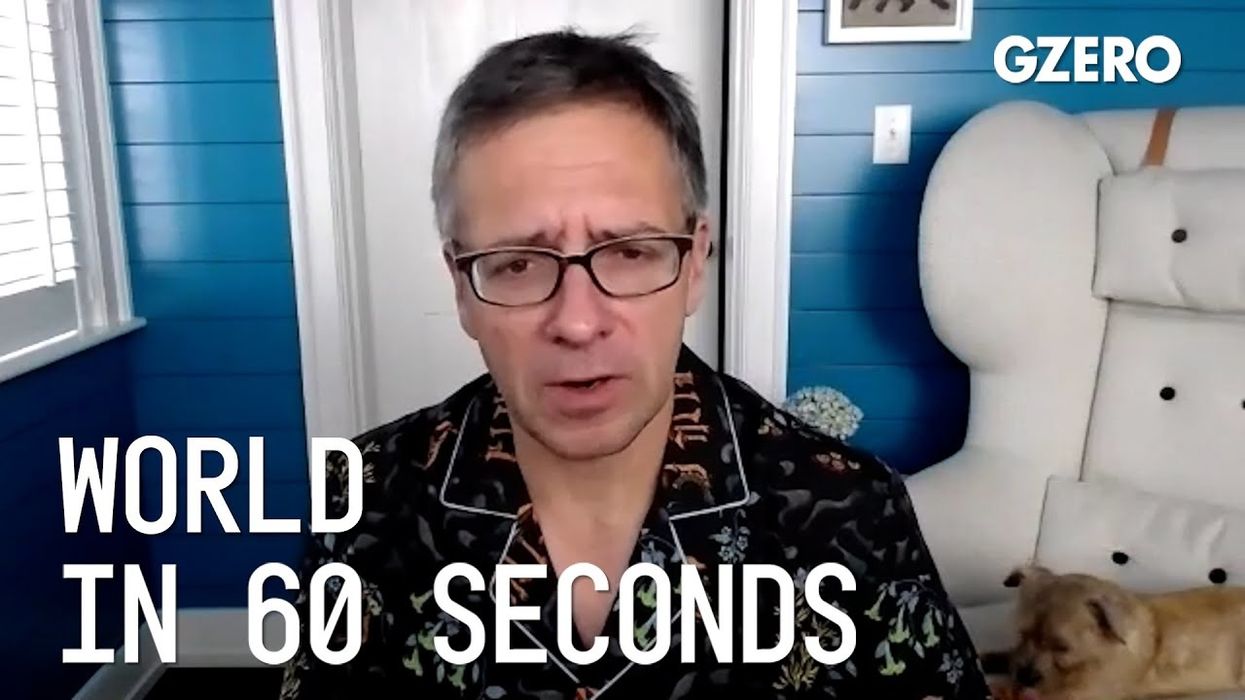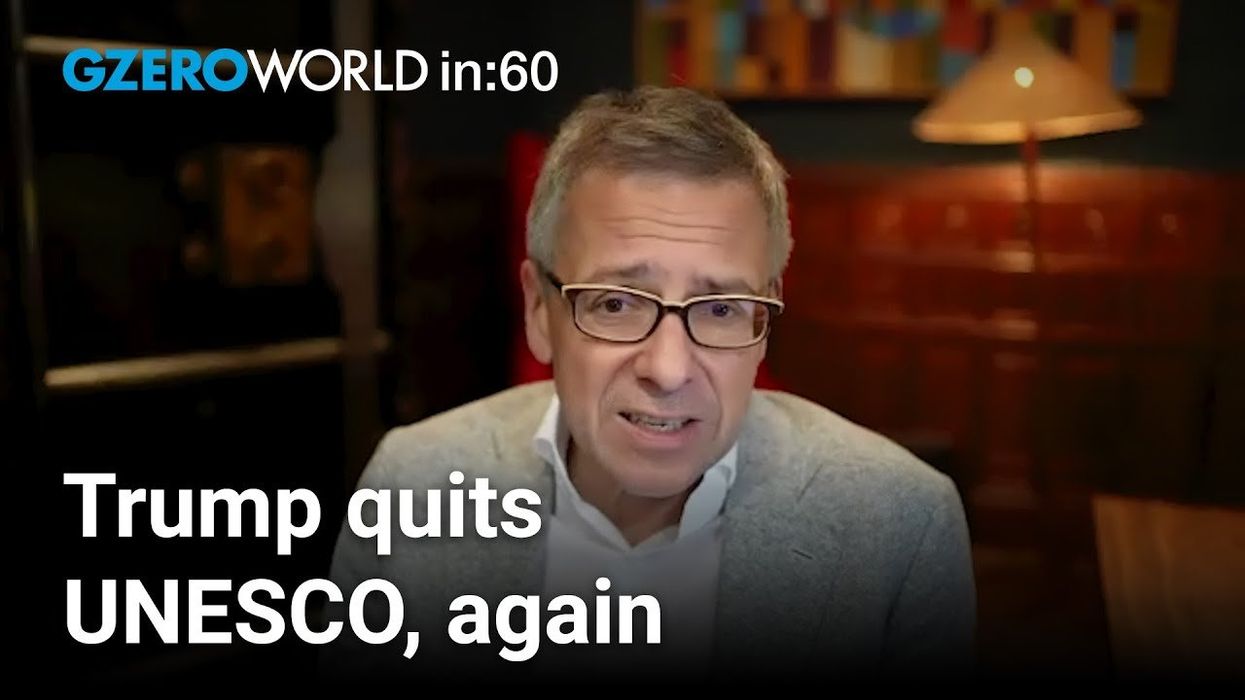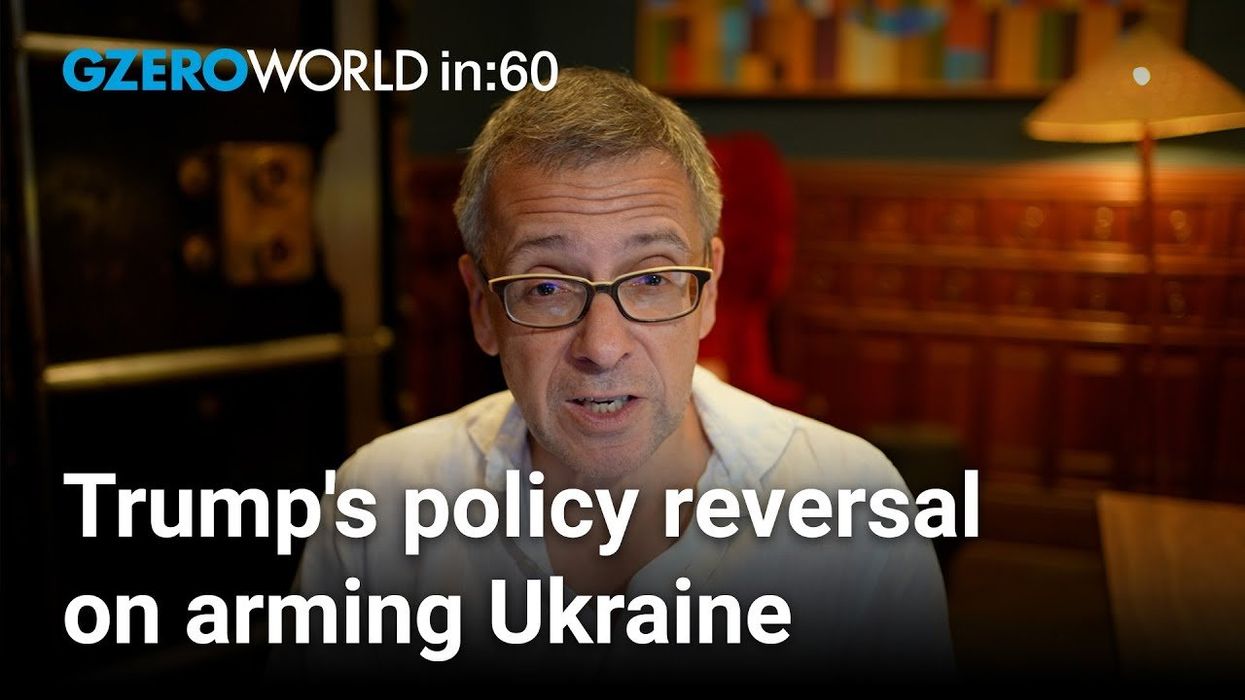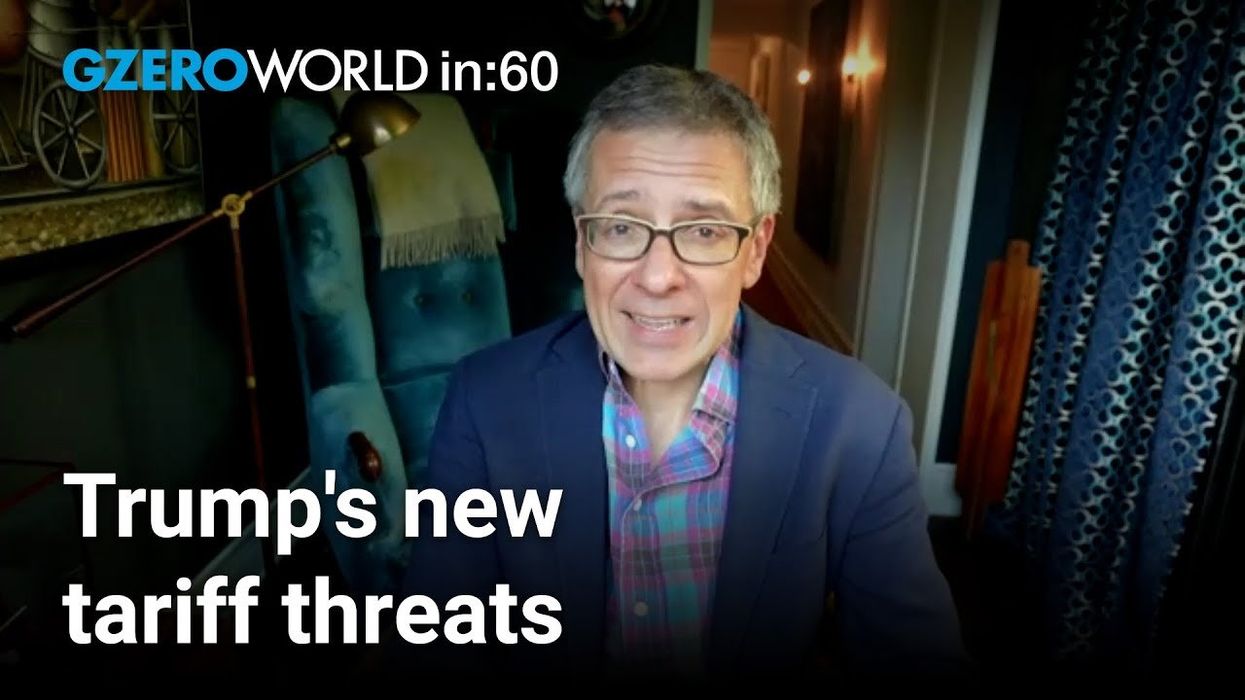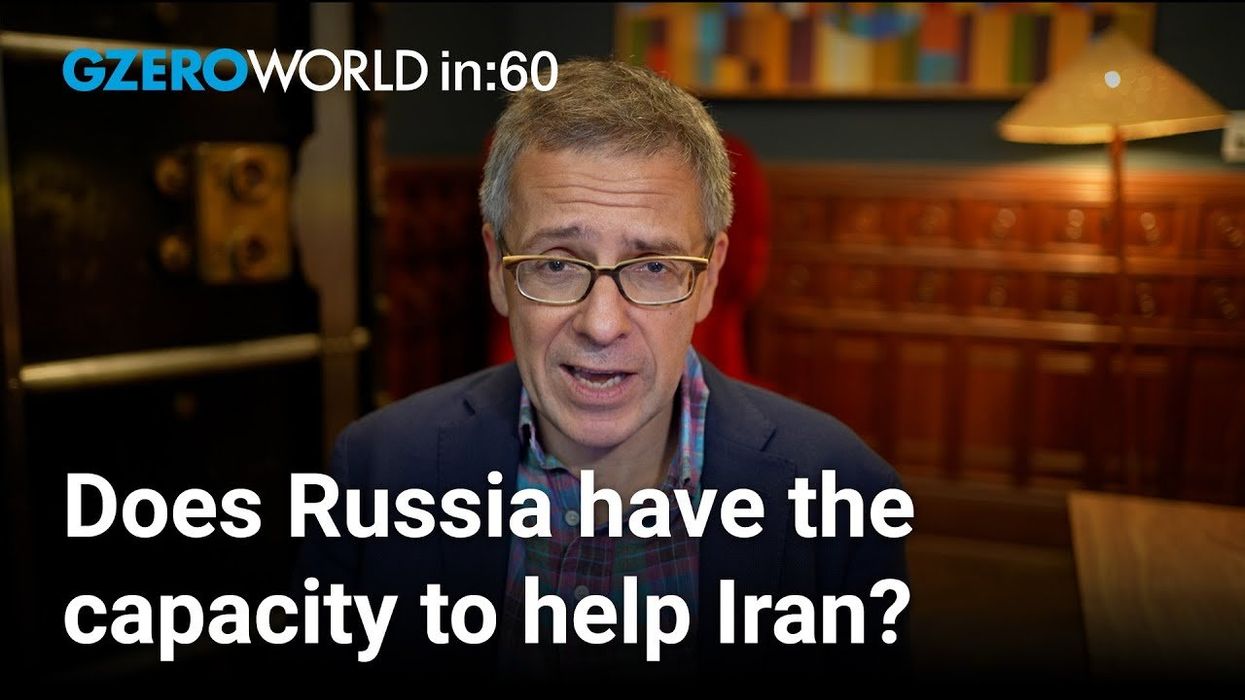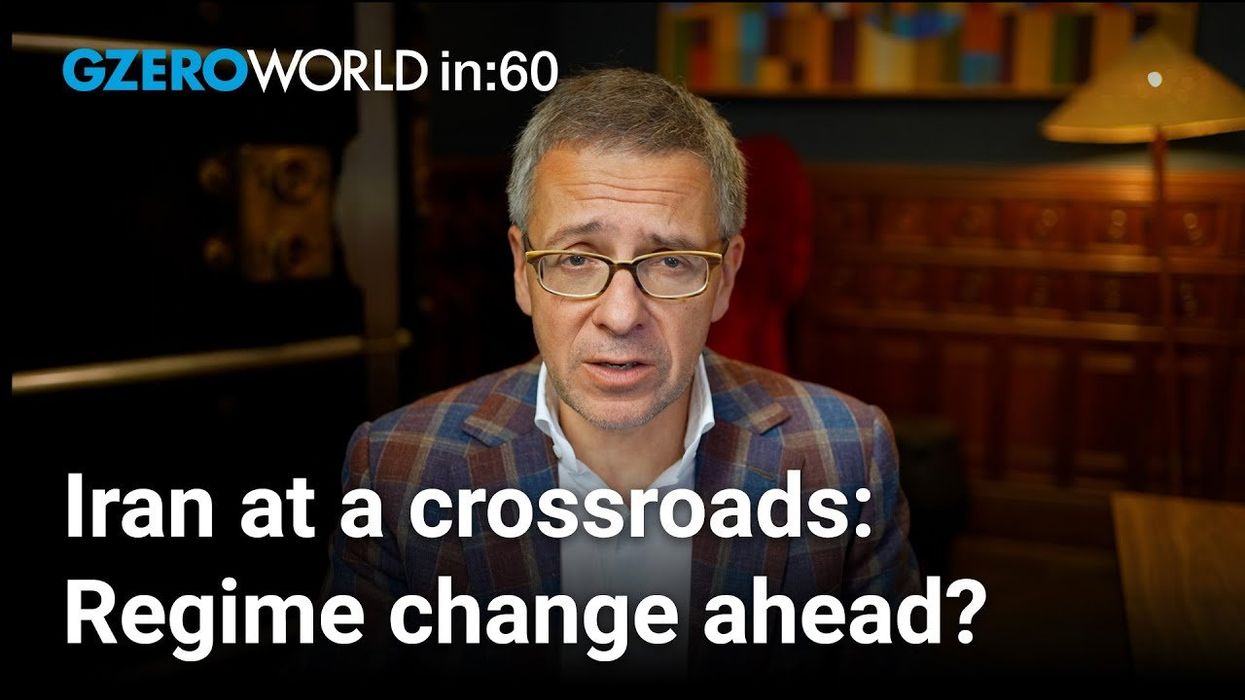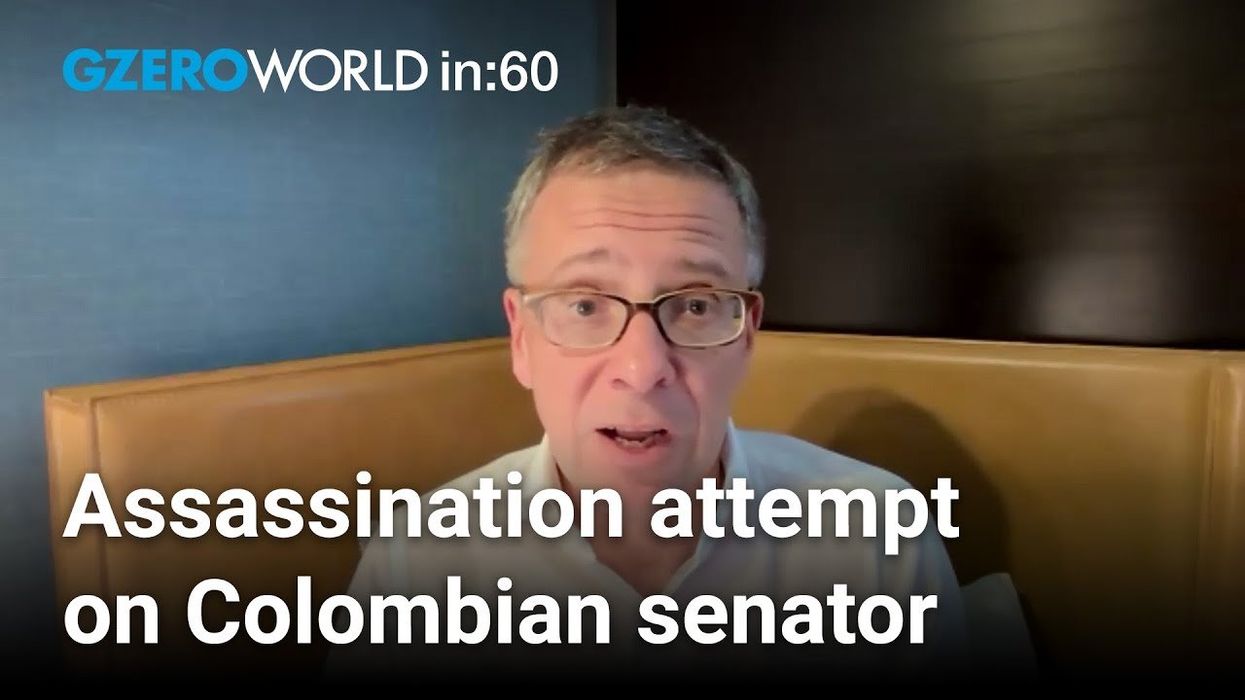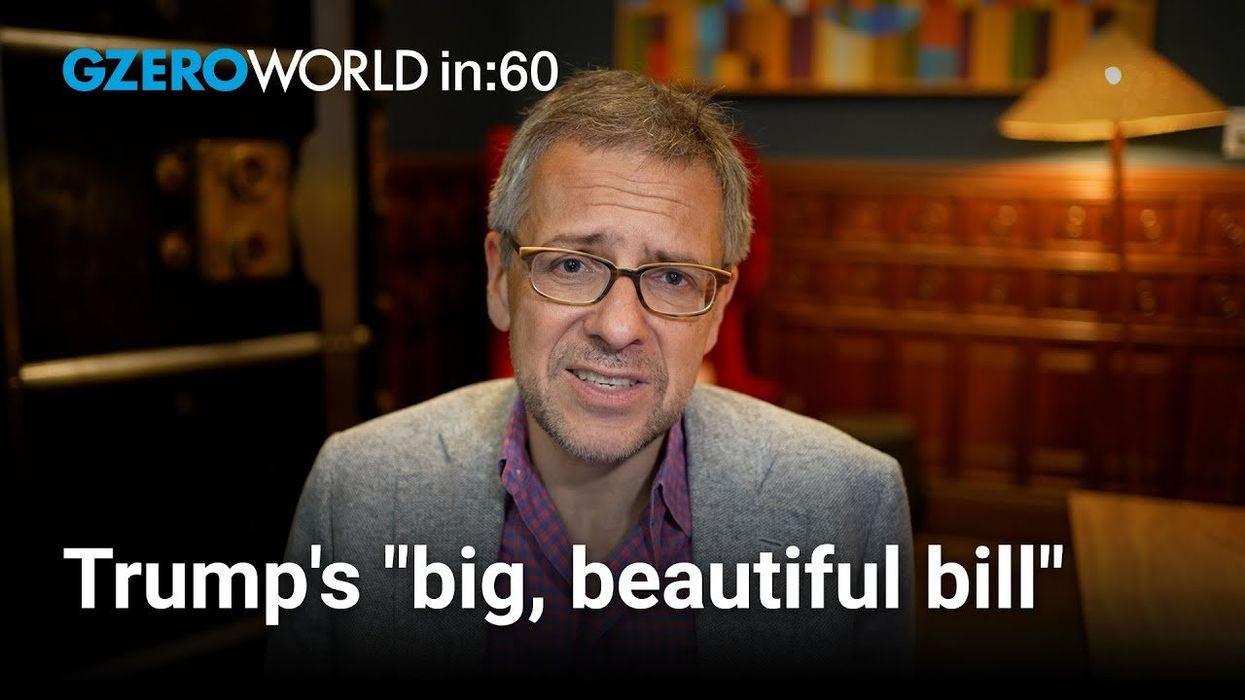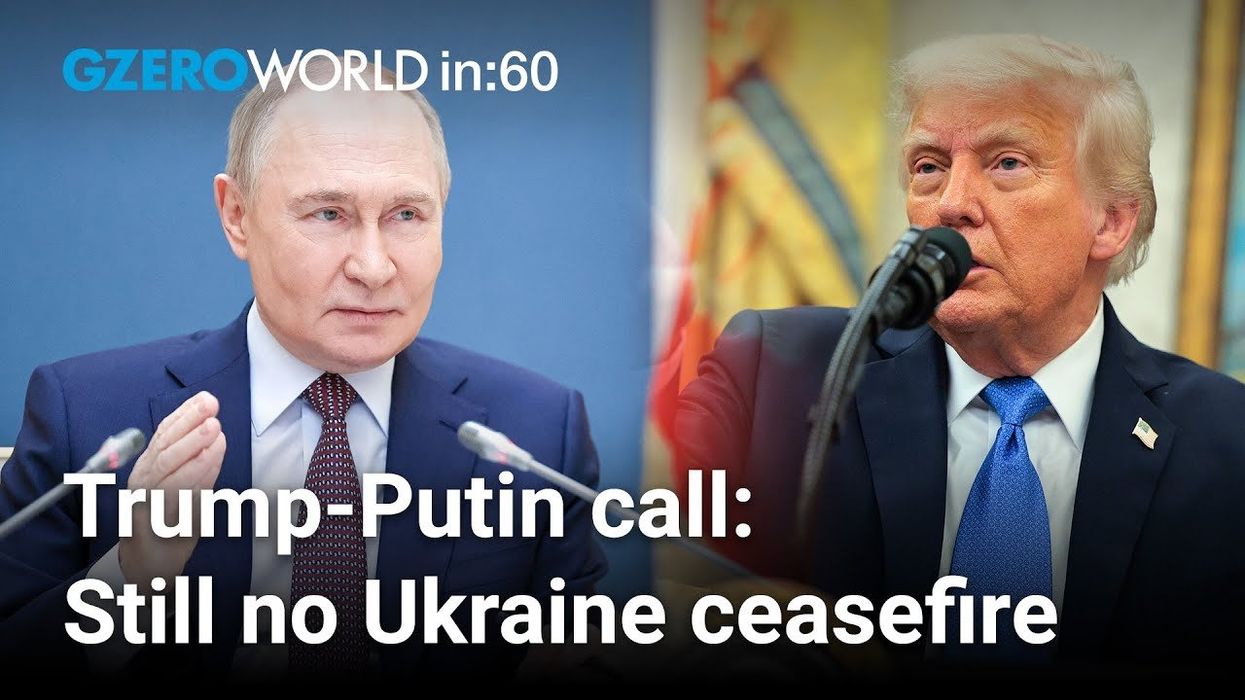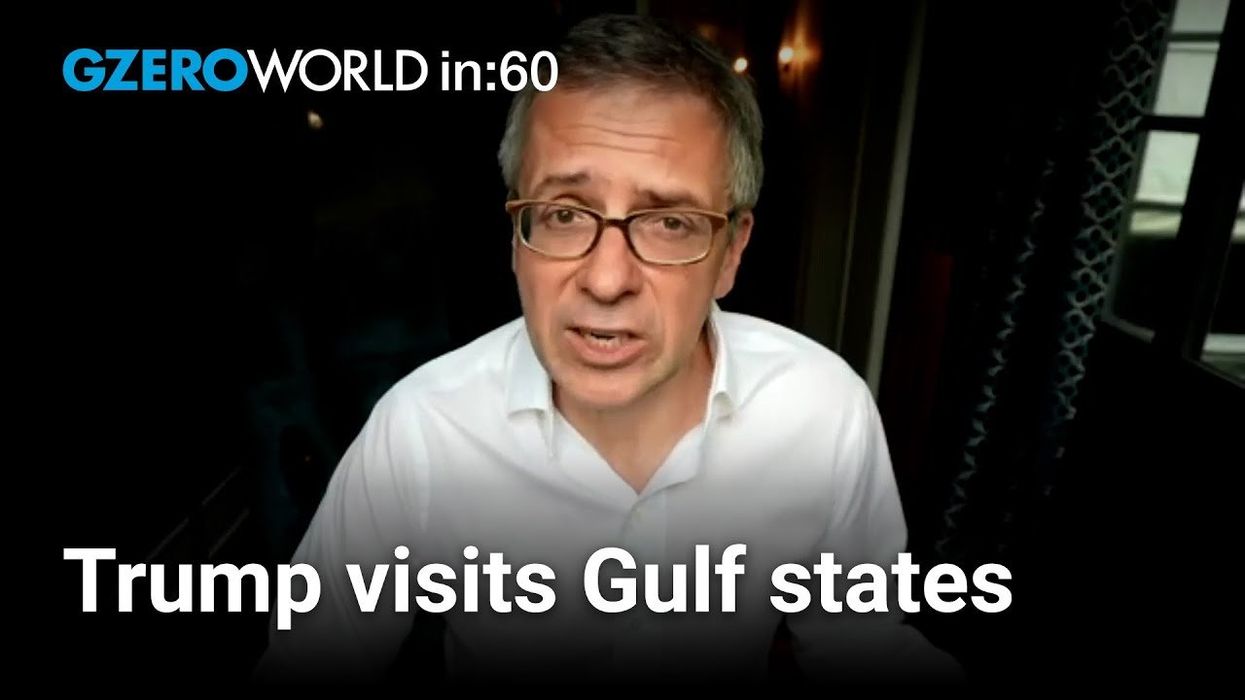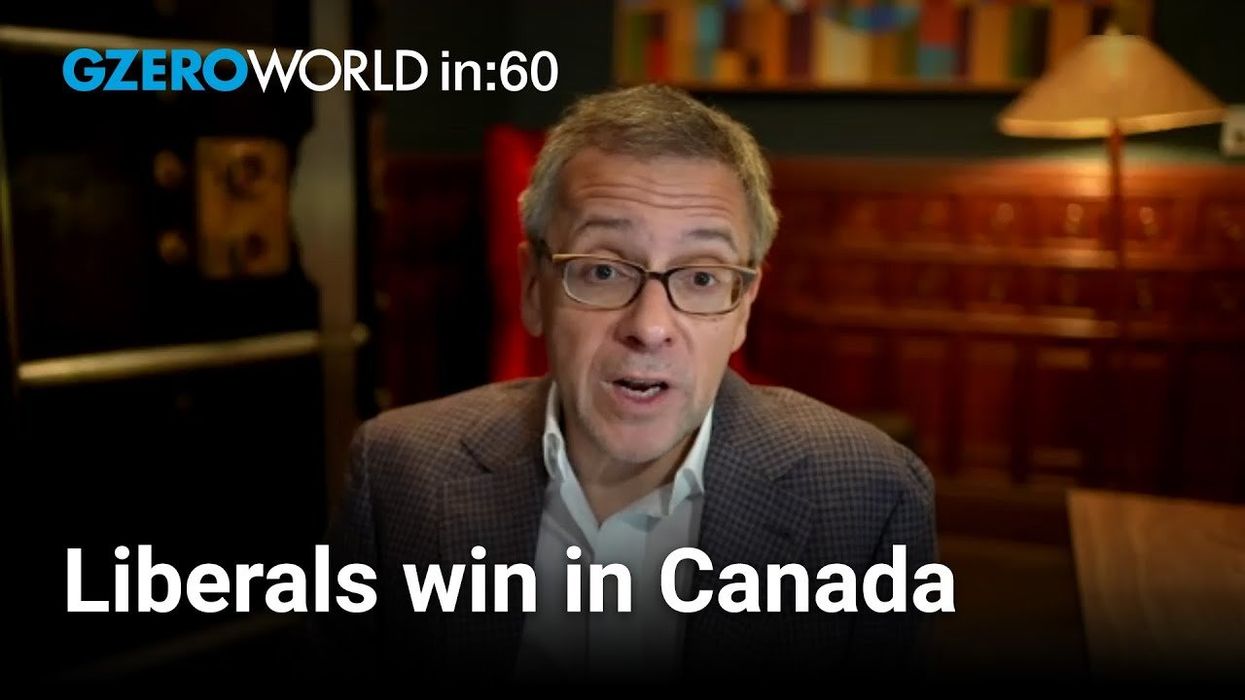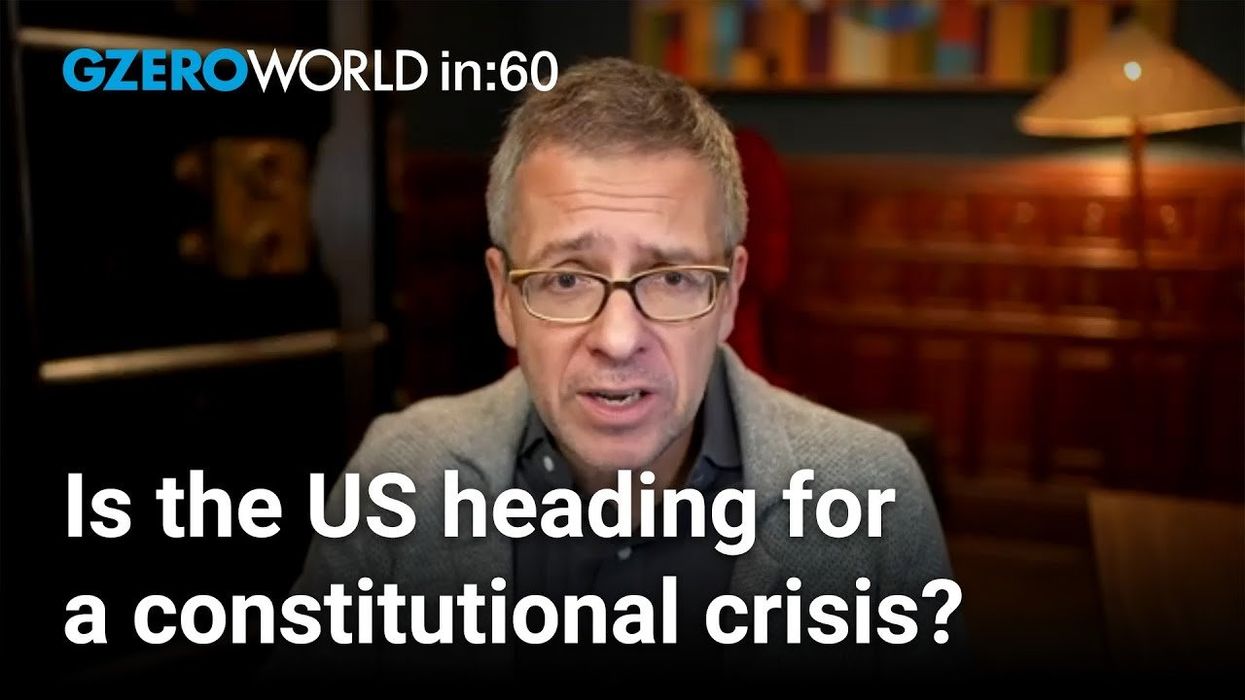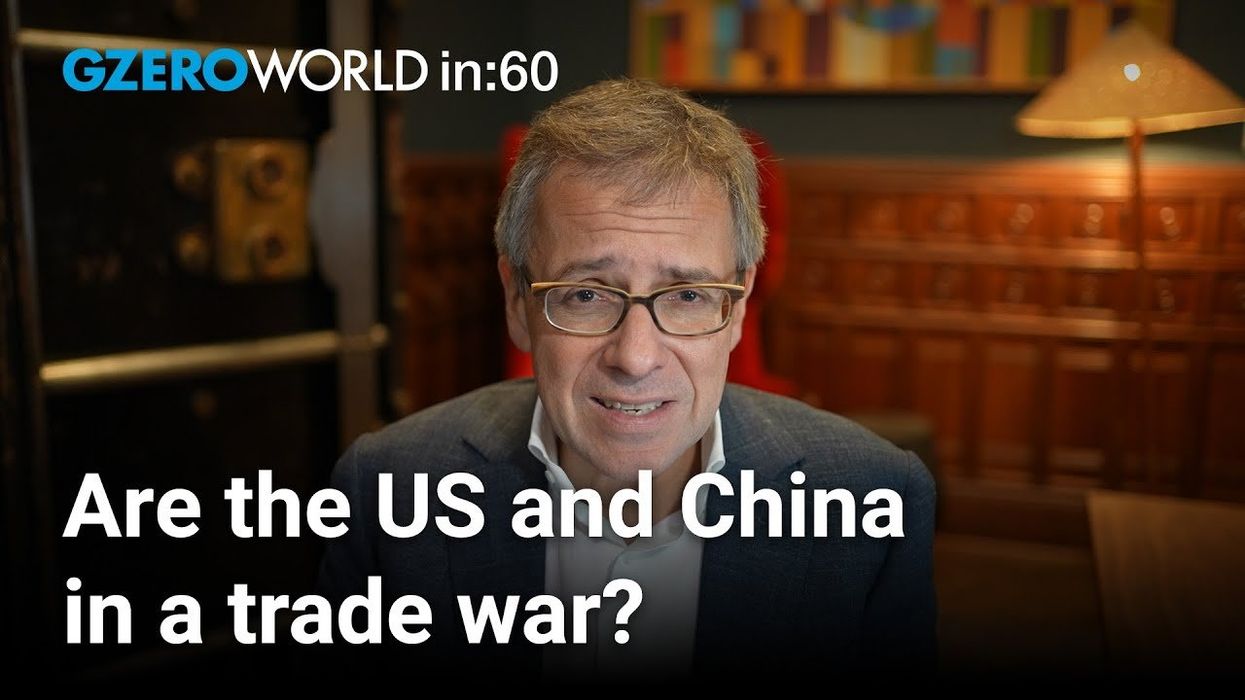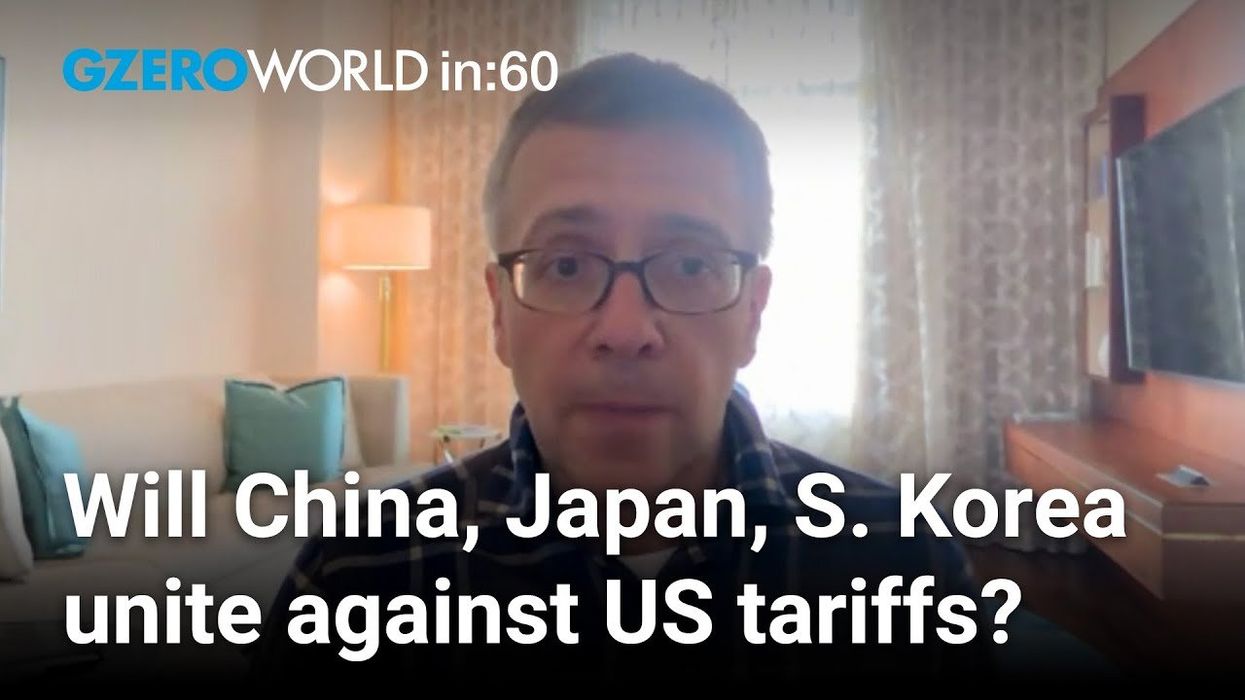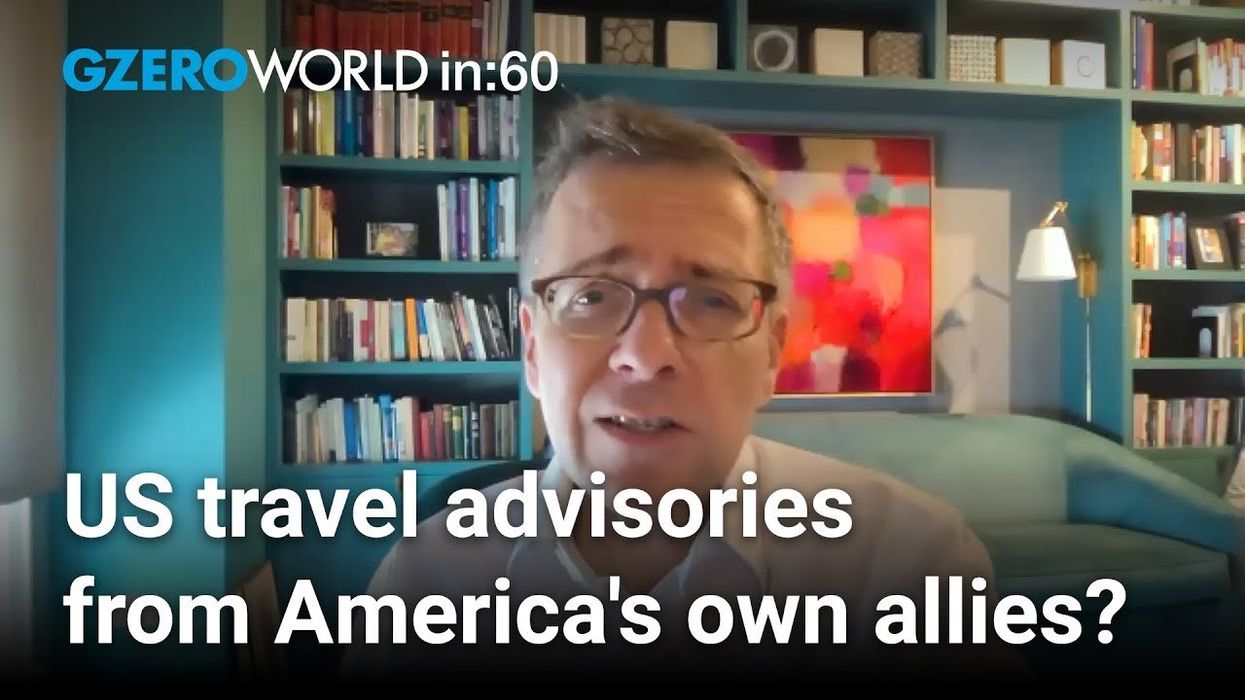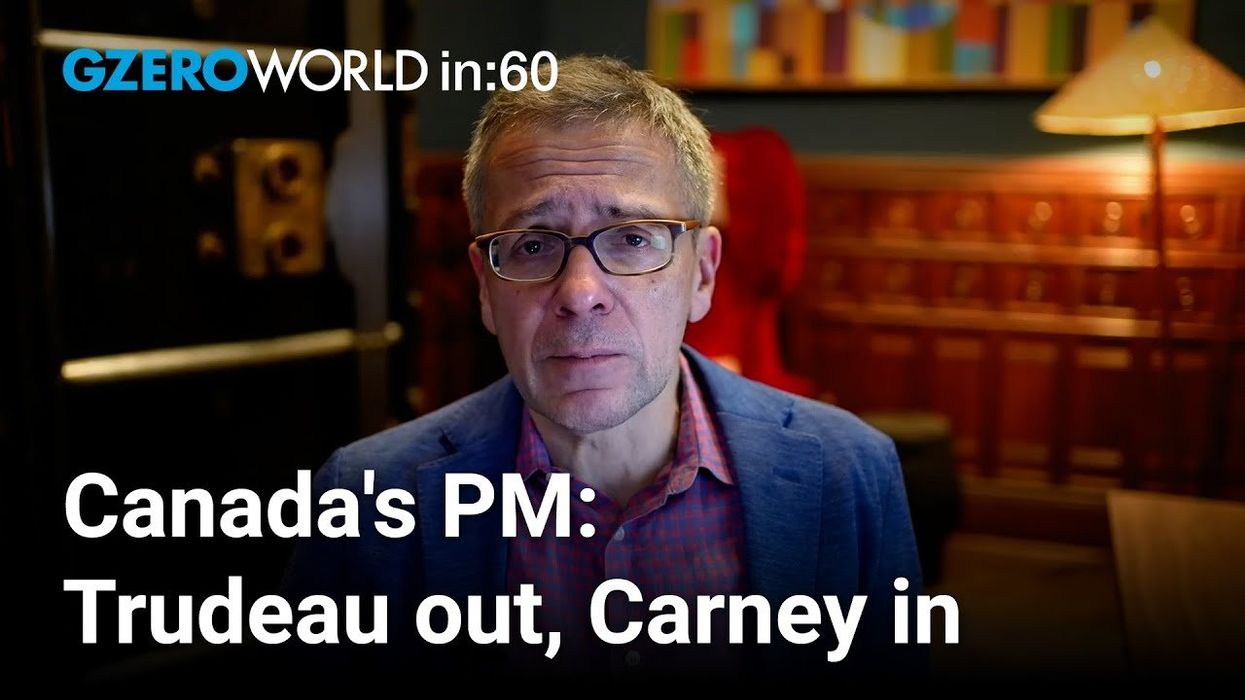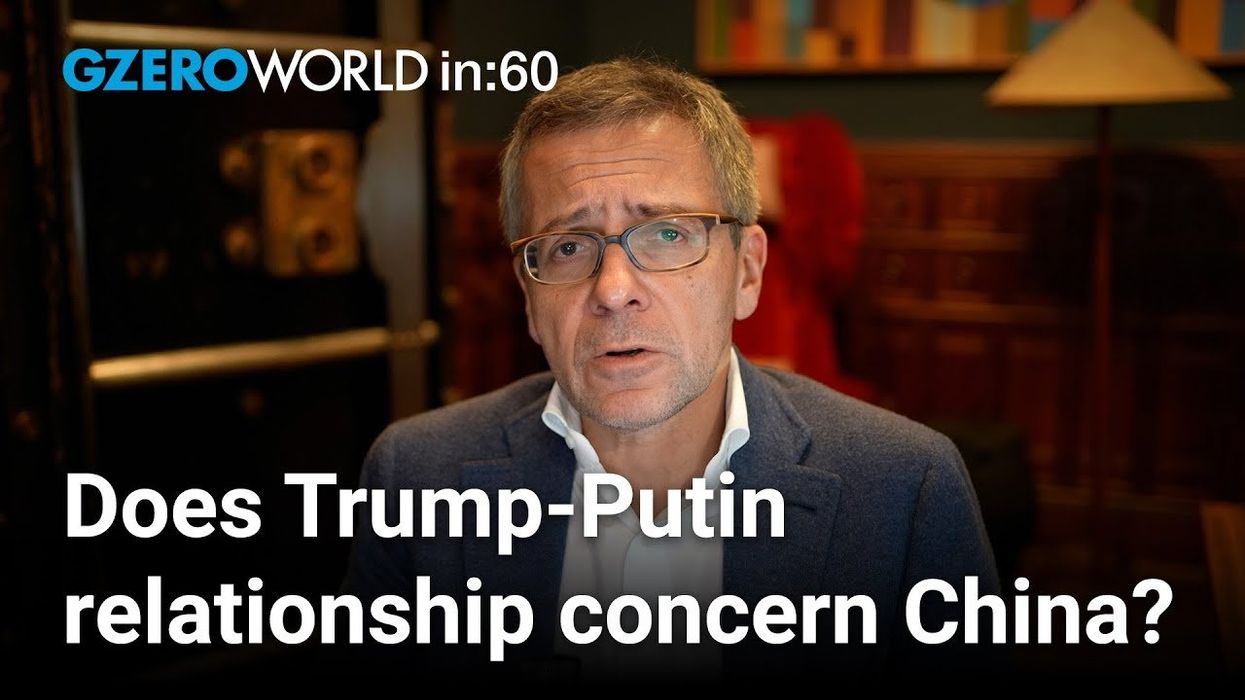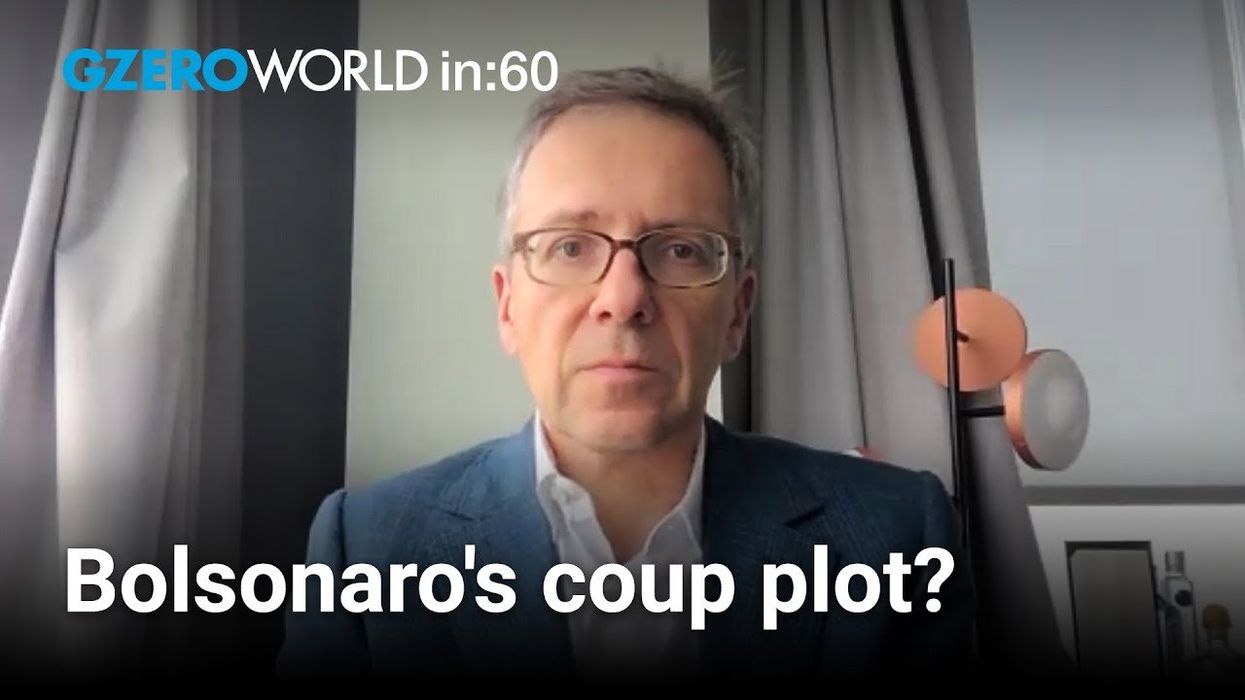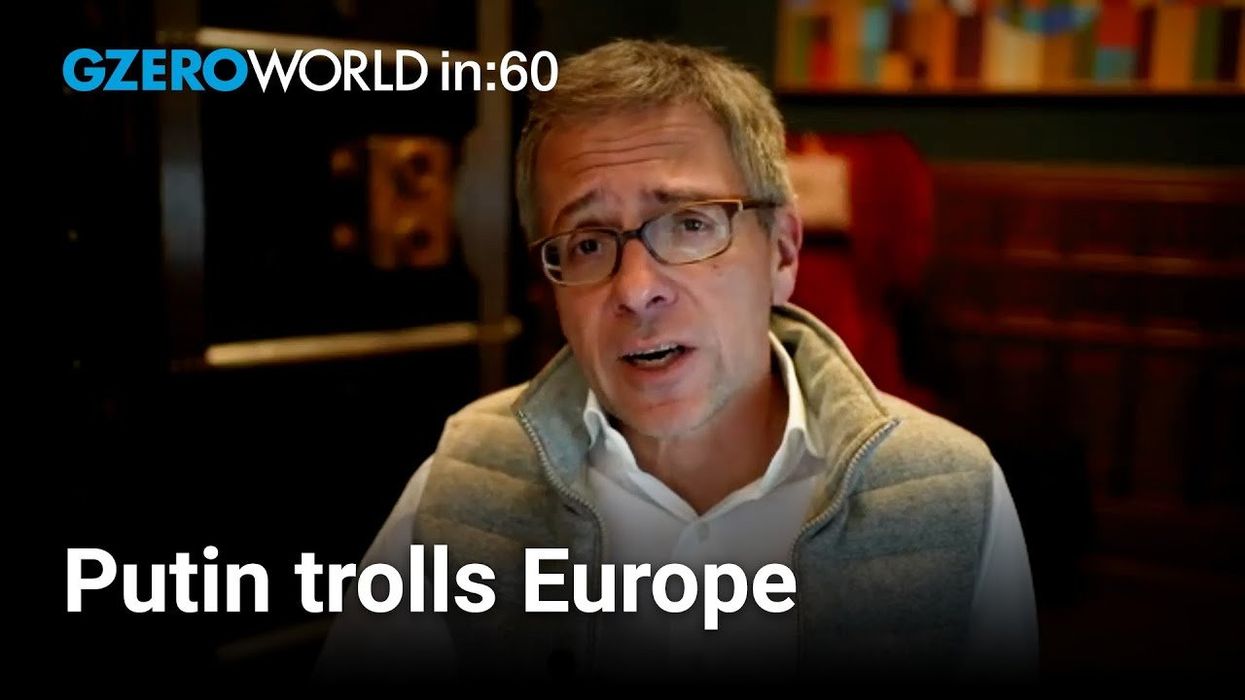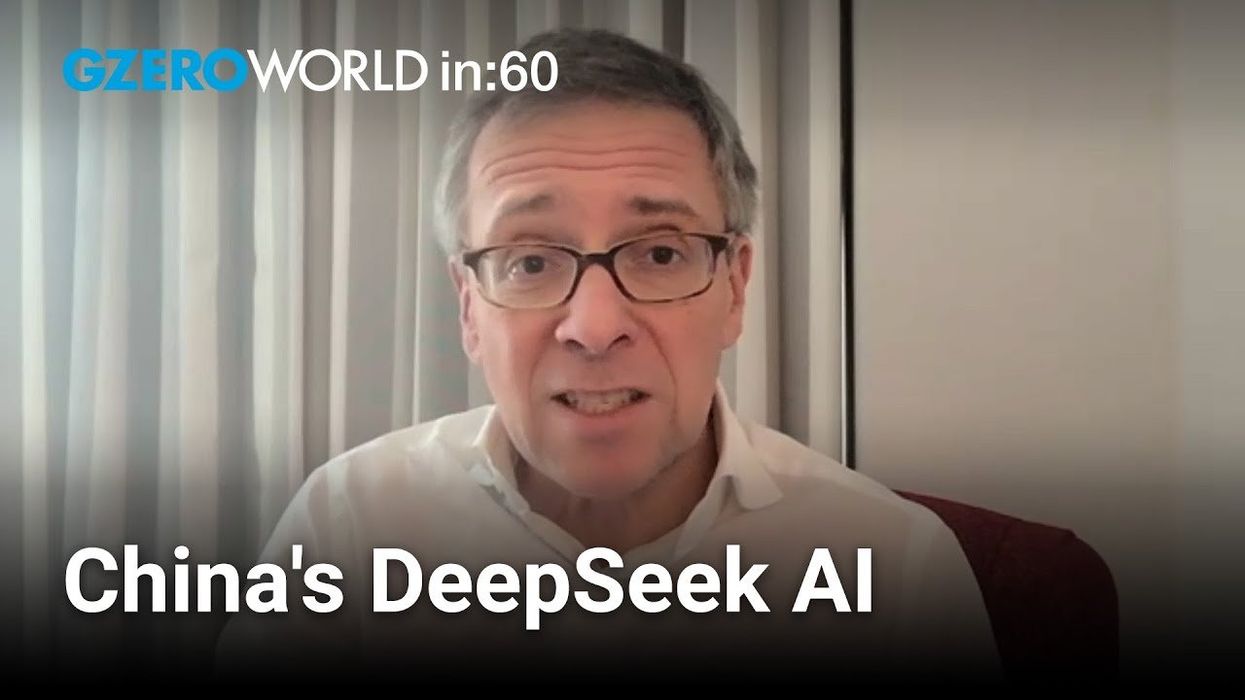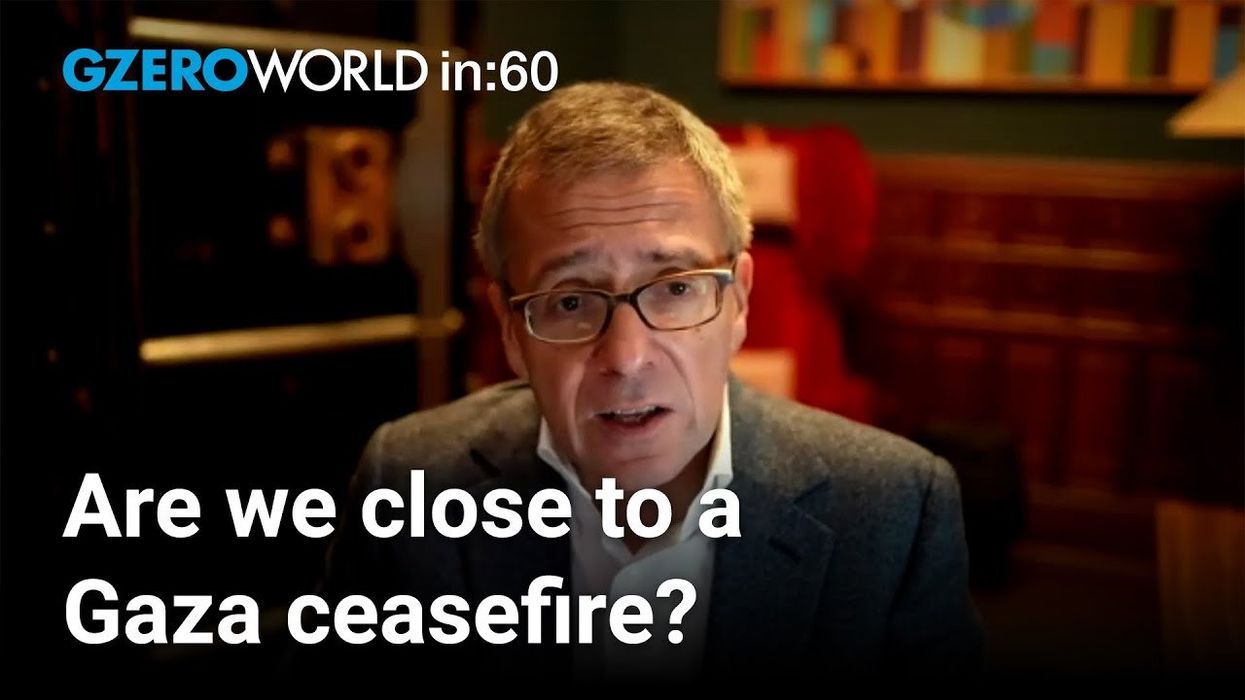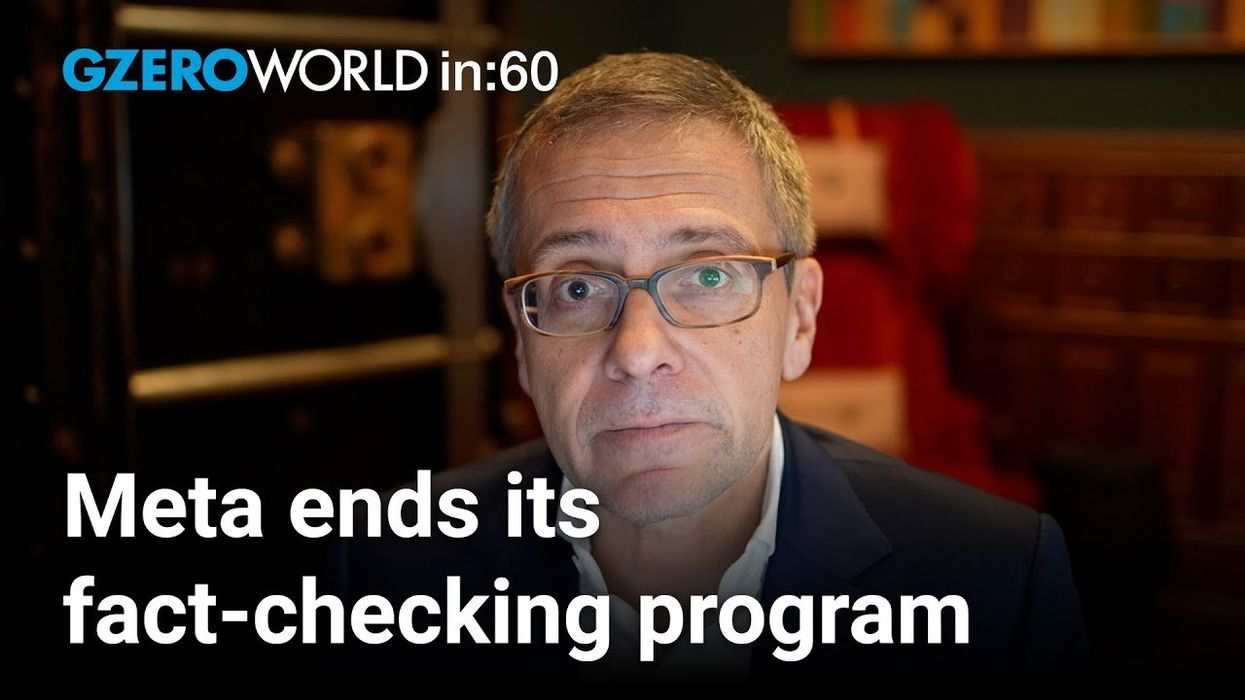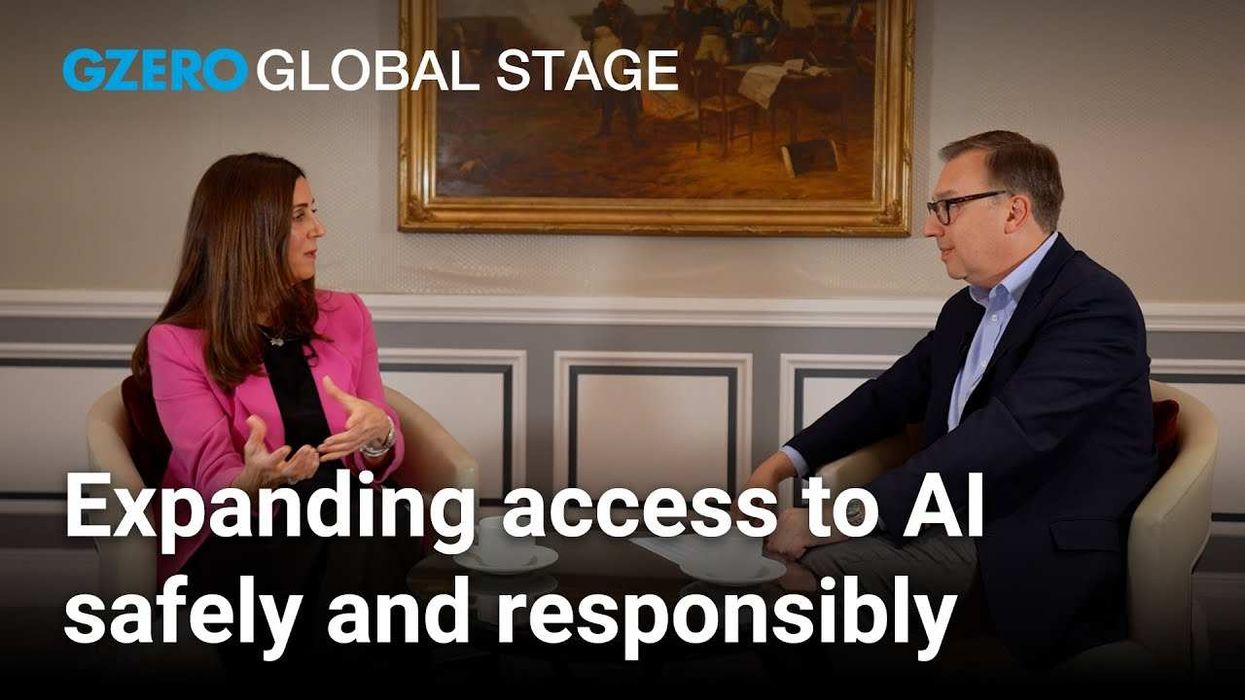VIDEOSGZERO World with Ian BremmerQuick TakePUPPET REGIMEIan ExplainsGZERO ReportsAsk IanGlobal Stage
Site Navigation
Search
Human content,
AI powered search.
Latest Stories
Start your day right!
Get latest updates and insights delivered to your inbox.
Ian Bremmer shares his perspective on global politics on this week's World In (More Than) 60 Seconds:
Number one, what is going on in Kyrgyzstan?
Otherwise was known as the Kyrgyz Republic. Well, massive demonstrations, a lot of violence, dozens injured, one dead, on the back of an election, parliamentary elections, where two parties that support the president said they won with a lot of claims of vote buying and corruption and massive outcry. And they've basically now overturned the result of the elections because the country was going to be in complete disarray. Not the first time in the Kyrgyz Republic there've been big demonstrations across the country to remove the outcomes of elections. We've seen presidents removed in the past. In this case, they actually got the former president who had been held in arrest for politicized charges has been removed from power. He's not saying he wants to be president, and the existing president isn't planning on stepping down, but it's clearly going to be messy and some time before we figure out how we redraw power in the Kyrgyz Republic.
It's not a very large country. It's only a few million people. It's in the mountains. It's basically locked up between China and Russia. So geopolitically, it doesn't have a lot of importance. It's mostly aligned with Kazakhstan next door, but still it is one more place there's just an awful lot of tension in the former Soviet Union, Russian country neighbors that the Russians think they should have the most influence over, and turns out it's really hard to maintain that extended presence. They're not happy about that. The Kremlin is not.
What's the update with the conflict between Armenia and Azerbaijan?
Well, similarly, here's a case where you've got a country, Armenia, that had a revolution. It was peaceful. They kicked out a corrupt kleptocracy. They're now being run by a democratic government. That democratic government still very much supports the Kremlin in terms of their trade deals, in terms of their intelligence sharing, and in terms of their defense relationship, they have a defense pact, to defend each other if one is invaded. Obviously, it's pretty asymmetrical because Armenia is all of five million people and landlocked, but nonetheless, didn't change that.
But the Russians aren't as happy be about the Armenians because the Russians see that Armenia is going its own way. It's more interested in civil society and Russia obviously is not. And so now for over a week, the Russians have been pretty much standing on the sidelines while there's been fairly significant attacks into mountainous Nagorno-Karabakh, an area that's overwhelmingly populated by Armenians, but that was historically part of the Azerbaijan Republic and the Azeris claim it as their territory.
There are ongoing negotiations, it's disputed territory, but it is now a military fight. Everyone's calling for ceasefire, except for Turkey, supporting Azerbaijan. And that's really kind of unfortunate because the Turks have a lot of military capacity, the Azeris have increased their military capacity, and the Armenians right now at least are pretty much all by themselves. So, brings back these historical concerns of genocide, which the Turks committed against the Armenian people some hundred years ago, and which the Turkish government has never admitted to. This has the potential to get a lot worse. And the news is between hundreds and even thousands dead on both sides at this point, and not getting much coverage at all here in the United States.
Okay. Final question. Will Trump change his views on COVID after contracting the virus?
Not at all. If anything, I mean, in Brazil after Bolsonaro contracted the virus, he said, "It's just a little flu. It's not a big deal." He was saying that before. In the United States, if anything, Trump is saying, actually this is, he's doubling down. He's saying, "I feel better than I did 20 years ago. I defeated the virus." I mean, I think it's very clear that within a week, Trump will be back, not only does he want to go to the debates, but he wants to be back on the campaign trail, and he wants to be back on the trail not wearing a mask, back on the trail with large masses, live, indoors. And we'll see. I mean, of course there'll be incredible outcry from people that can't stand Trump, but that's not new. I mean, as long as the two sides are completely in different information and media spheres, I think that this Trump strategy is not going to change.
The problem for Trump is that he's not getting an electoral college majority that way. He's actually dropped a point, two points, in key swing states over the last week. It's still early. We still need a lot of polls to come out to see how his handling of coronavirus is affecting the polls. But in Brazil they only picked up Bolsonaro a month later because the Brazilian population was having less of a hard time from coronavirus. In the United States those numbers still are persisting. They're not softening anywhere near what people would want them to. And it's going to be hard for them because Trump himself is not leaning into policies that would make that so. So what does it mean? It means his attitude is absolutely not changing and we've got four more weeks of everyone pulling their hair out in both sides of the political spectrum.
Keep reading...Show less
More from ask ian
Trump pulls US out of UNESCO, again
July 22, 2025
Trump announces new plan to arm Ukraine
July 15, 2025
Are NATO allies aligned on Iran?
June 24, 2025
Will Iran’s regime survive?
June 18, 2025
Trump-Musk rift over Trump's "big, beautiful bill"
June 04, 2025
What is Trump after in his latest Gulf states tour?
May 13, 2025
Why Mark Carney’s victory won’t heal the US-Canada rift
April 29, 2025
Trump tariff is starting a US-China trade war
April 08, 2025
What if Japan & South Korea sided with China on US tariffs?
April 01, 2025
US travel warnings issued by its closest allies
March 25, 2025
US-Canada trade war helps Mark Carney's election prospects
March 11, 2025
Why Trump won’t break the Putin-Xi alliance
March 04, 2025
Will Trump & Musk punish Brazil over Bolsonaro indictment?
February 19, 2025
Putin trolls Europe about "the master" Trump
February 04, 2025
DeepSeek puts US-China relations on edge
January 30, 2025
Gaza ceasefire likely as Biden and Trump both push
January 14, 2025
Meta scraps fact-checking program: What next?
January 07, 2025
GZERO Series
GZERO Daily: our free newsletter about global politics
Keep up with what’s going on around the world - and why it matters.

